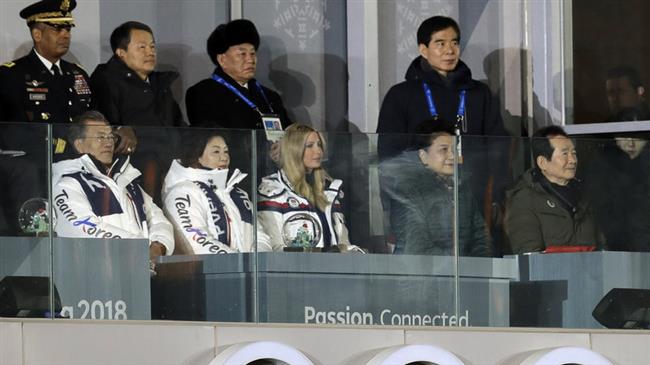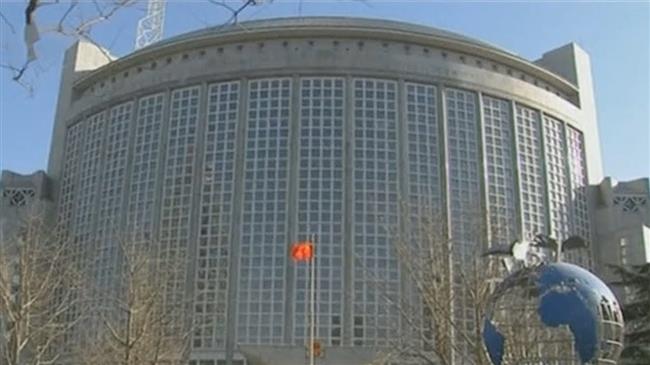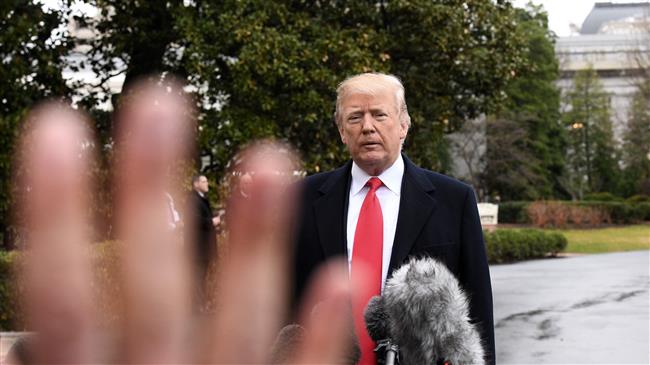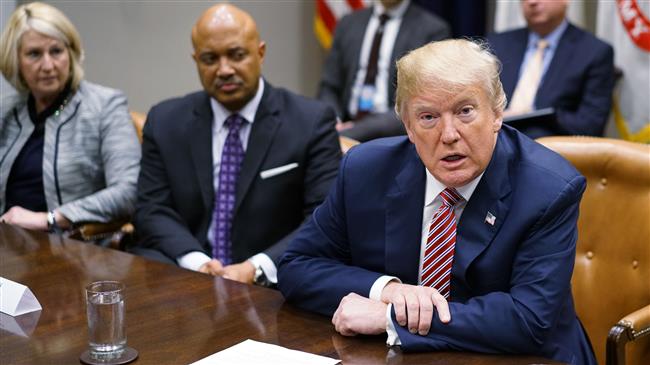US says talks with North Korea must lead to end of nuclear program
The White House has responded to North Korea's willingness to hold talks with the United States, saying any talks with North Korea must lead to a complete end to its nuclear program.
South Korea said on Sunday Pyongyang agrees that ties between the two Koreas and the US-North relations should improve together. The news of North Korea’s interest in talks with the US followed a meeting between a high-level North Korean delegation and South Korean President Moon Jae-in.
The North’s delegation is in the South to attend the closing ceremony of the Winter Olympics games. Reports say it includes diplomats in charge of the North's nuclear program. The US President’s daughter, Ivanka Trump, along with White House Press Secretary Sarah Huckabee Sanders and Vice President Mike Pence, is also in the South, but there is no indication that the two sides would hold any meeting.
“We will see if Pyongyang’s message today, that it is willing to hold talks, represents the first steps along the path to denuclearization. In the meantime, the United States and the world must continue to make clear that North Korea’s nuclear and missile programs are a dead end,” said a statement issued by Press Secretary Sanders.
Sanders also said that the US and South Korea “broadly agree that denuclearization must be the result of any dialogue with North Korea. The maximum pressure campaign must continue until North Korea denuclearizes. As President Trump has said, there is a brighter path available for North Korea if it chooses denuclearization.”
In response to the North Korean interest in talks, Pence said the US was open to talking but that "no pressure comes off until they are actually doing something that the alliance believes represents a meaningful step toward denuclearization."
"So the maximum pressure campaign is going to continue and intensify. But if you want to talk, we'll talk," Pence said.
New sanctions on North
The United States announced on Friday it was imposing its largest package of sanctions aimed at getting North Korea to give up its nuclear and missile programs.
The US followed through on its promise of intensification, announcing a new set of sanctions against 27 entities and 28 vessels either registered or flagged in several countries, including North Korea, China and Singapore.
The measures target the "deceptive shipping practices that have enabled the Kim regime to fund its dangerous weapons programs," Treasury Secretary Steven Mnuchin said in a statement.
US President Donald Trump described the measures as the “heaviest sanctions ever” levied on Pyongyang.
On Sunday, North Korean state media accused the United States of provoking confrontation on the Korean peninsula with the sanctions.
The UN Security Council also unanimously imposed new sanctions on North Korea in December last year following an intercontinental ballistic missile (ICBM) test, seeking to further limit Pyongyang’s access to refined petroleum products and crude oil.
North Korea has been under a raft of crippling UN sanctions since 2006 over its nuclear tests as well as multiple rocket and missile launches.
Jan. 15: ‘Axis of Resistance’ operations against Israeli occupation
VIDEO | US fires: Criticism mounts over govt. failure to respond
VIDEO | Fears, hope in Gaza amid intensified ceasefire efforts
VIDEO | Press TV's news headlines
Hamas: Ceasefire agreement result of steadfastness, resistance in Gaza over 15 months
Hamas thanks Iran, Resistance Front following achievement of ceasefire in Gaza
'Capitulation': Israeli officials and media concede Gaza defeat as truce unfolds
'Gaza has won': Social media users react to ceasefire with mix of relief, joy














 This makes it easy to access the Press TV website
This makes it easy to access the Press TV website